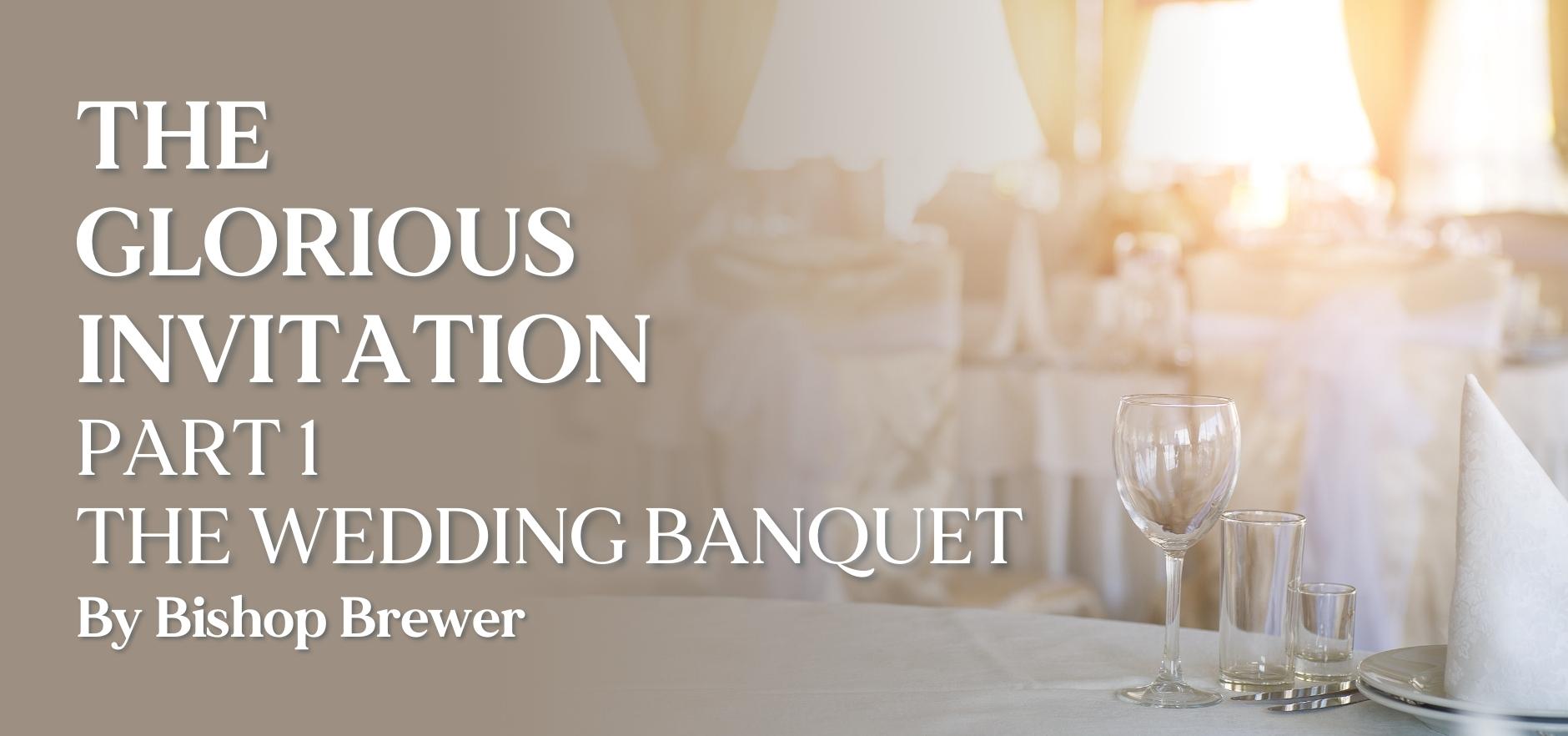The Glorious Invitation – Part 1: The Wedding Banquet
If you could distill the commitments Christians make at the time of their confirmation down to one brief sentence, it would be this: Christians are those men and women who have committed to living their lives not on their terms, but on the terms of Jesus Christ. And this is shown particularly in Jesus’ Parable of the Wedding Banquet in Matthew 22:1-14.
To Jesus’ listeners, this parable was a shocker. It’s full of twists and turns, right to the very end.
Many Are Called
Those who heard the story understood the idea of a king having a huge wedding banquet in honor of his son’s marriage. That made sense. Who gets invited? All of the king’s cohorts, the best families, people the most connected, politically and otherwise. It was a gathering, in essence, of a class. That’s what happens at these sorts of weddings.
But then – shocker – nobody wants to come.
Now you need to know that to refuse an invitation from the king is an affront, a life-threatening decision. And so when Jesus says, “they would not come” (Matt. 22:3b), the crowd is appalled. They never would have expected such a thing to happen.
Then the king turns to his servants and says, “OK, here’s what I want to do. They can’t get away with this.” And so what does he do? He burns their city to the ground.
That was expected. No one gets away with affronting the king. But then the king says to his slaves, “The wedding is ready; those invited were not worthy. Go therefore into the main streets, and invite anyone you find to the wedding banquet” (Matt. 22:8b-9).
“Anyone? The king has never acted like this before,” the people are thinking. But the slaves do as their master has said. And so all the guests are collected, both good and bad, so the wedding hall is filled.
You see, they did not live in a time of egalitarianism, not even close. No sense of what our Constitution describes as “all are created equal.” This is before any of that; it’s all hierarchical. You’re born into a particular station in life. And that’s where you stay, and there is no way you can work your way out of it.
So is this king inviting everyone, no matter who she or he is? This is not a normal king. What’s going on here?
But Few Are Chosen
But then it’s not over. They’re all in the banquet hall, and in a way that can only be expressed as an act of kindness, everyone who is invited – because they certainly cannot afford formal attire for a wedding – is given a wedding robe, a garment, as it were. That’s the signal that they’re invited. And in fact, it’s another way of saying, “Regardless of who you are, regardless of socioeconomics, regardless of anything, you are on equal footing with every other person here; you too are included.”
But then, of course, there’s one man who refuses. He doesn’t want to be just like everybody else. He wants to be there on his terms, not on the terms of the king.
And so when the king makes his entrance in front of all of these established guests assembled to greet him, he’s gratified that his banquet hall is full. He has in fact, in their culture, “saved face.” His son is honored.
But then he notices that one person there doesn’t have on the garment everyone else has. “Is he an interloper? How did he even get in here? What’s going on?”
And notice the king’s language: “Friend.” He’s willing to say, in essence, “Maybe there was a mistake? How did you get in here without a wedding robe?”
But the man, in fact, has nothing to say. He knows that at this point, no matter what the motivation was for refusing the garment, he is in the wrong, and he is thrown out of the banquet.
“Many are called” (Matt. 22:14a). The banquet is full, with plenty of room for everyone, no matter who they are.
“But few are chosen” (Matt. 22:14b). Few are willing to actually say yes to the fullness of the invitation and therefore become true followers of the King.
In part 2 of this post, we’ll learn more about life on the King’s terms.
What questions do you have about this often-misunderstood parable? Share this blog and your response on Twitter. Please include my username, @revgregbrewer.
(This post is an adaption of Bishop Brewer’s sermon for Oct. 11, 2020, at St. Mark’s Episcopal Church, Haines City, Florida.)
Unless otherwise noted, Scripture quotations are from the New Revised Standard Version Bible, copyright © 1989 the Division of Christian Education of the National Council of the Churches of Christ in the United States of America. Used by permission. All rights reserved.

